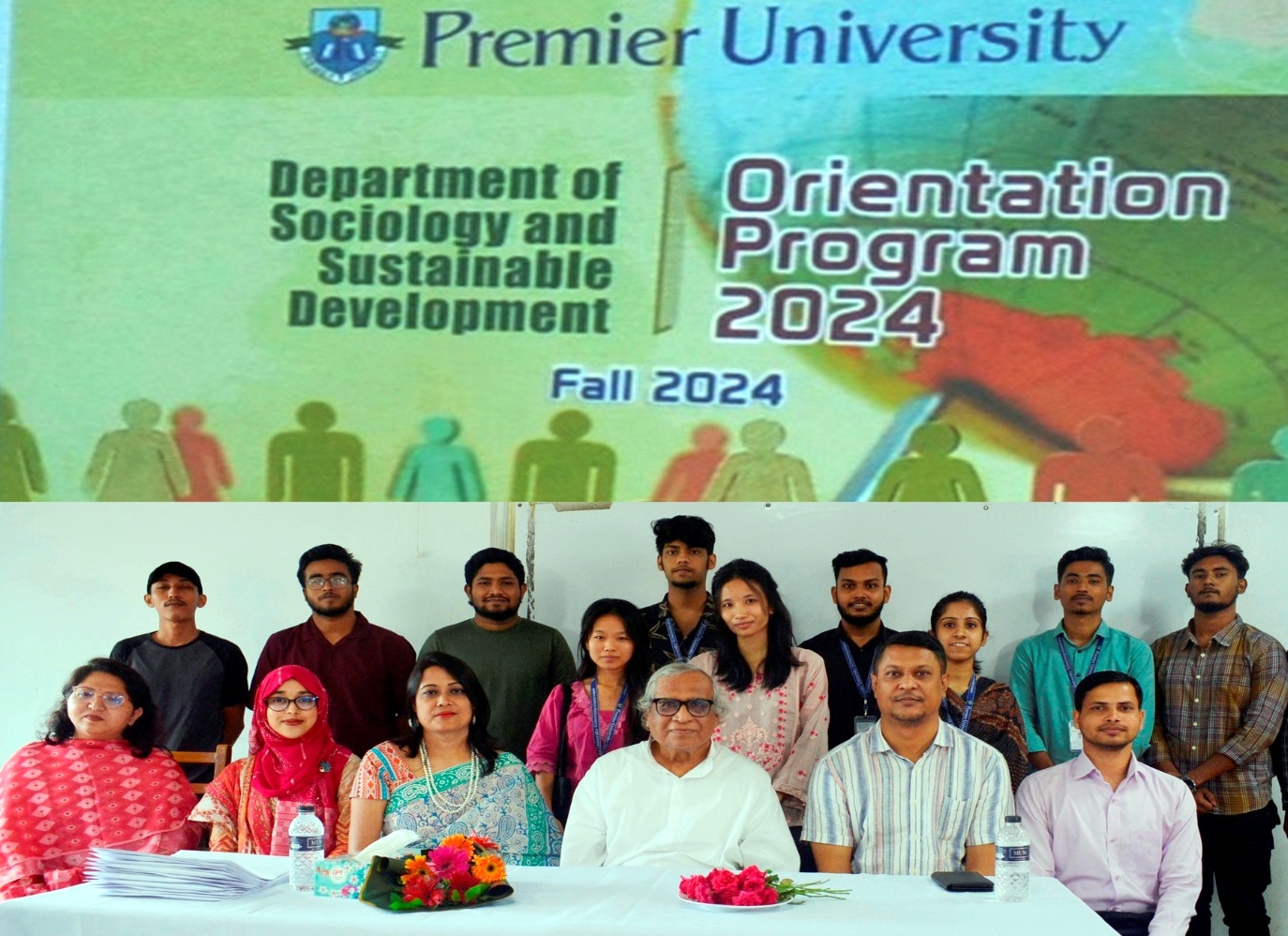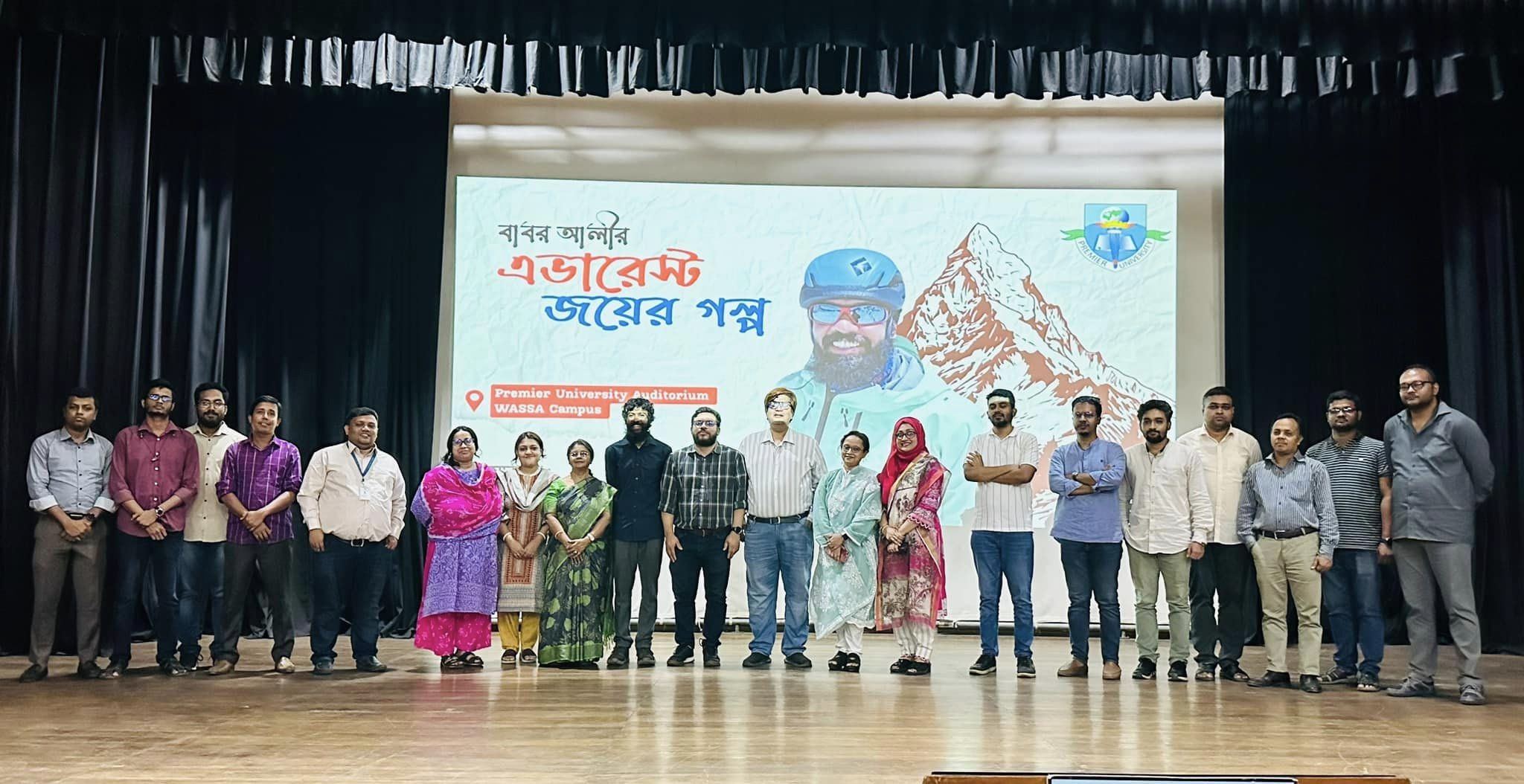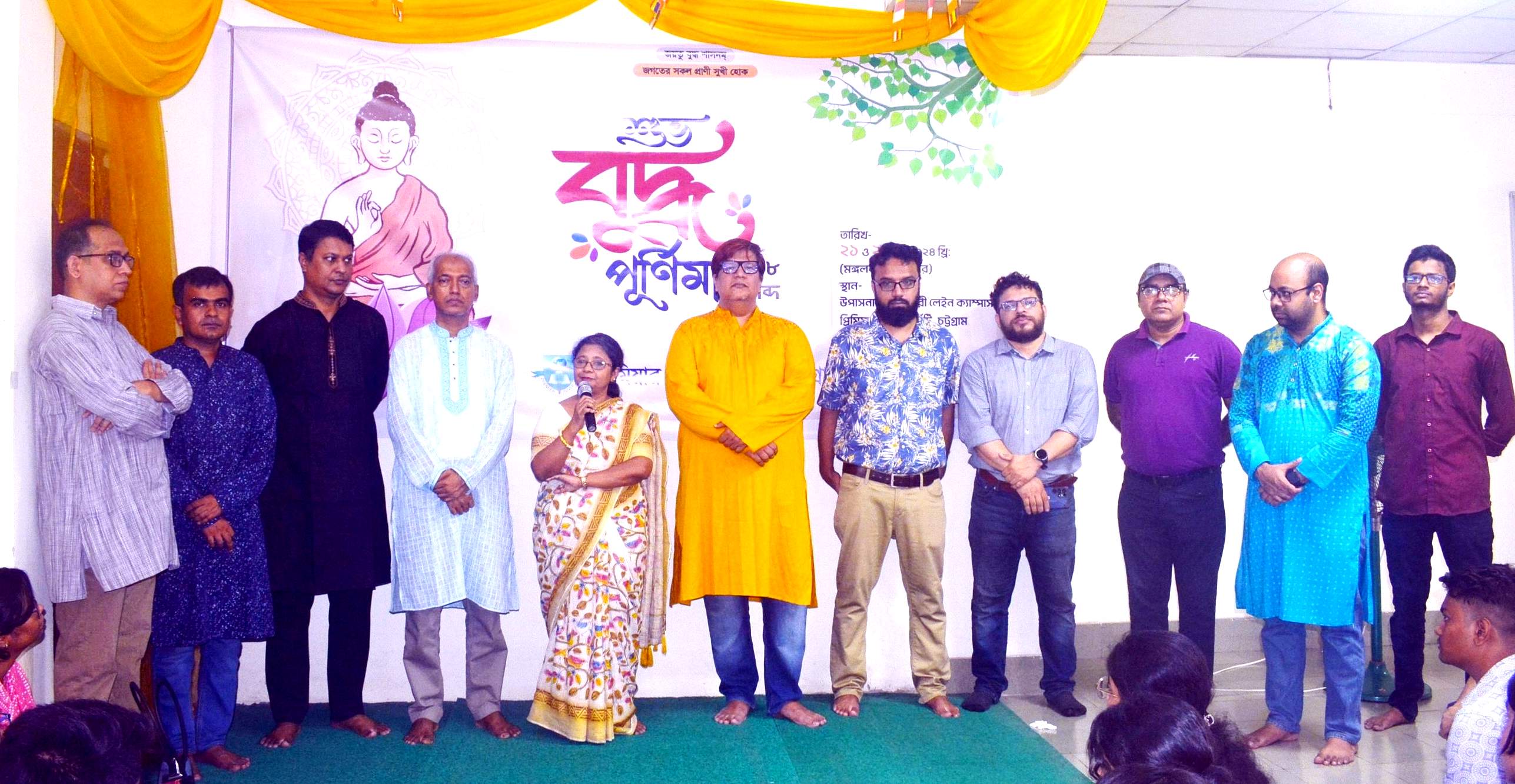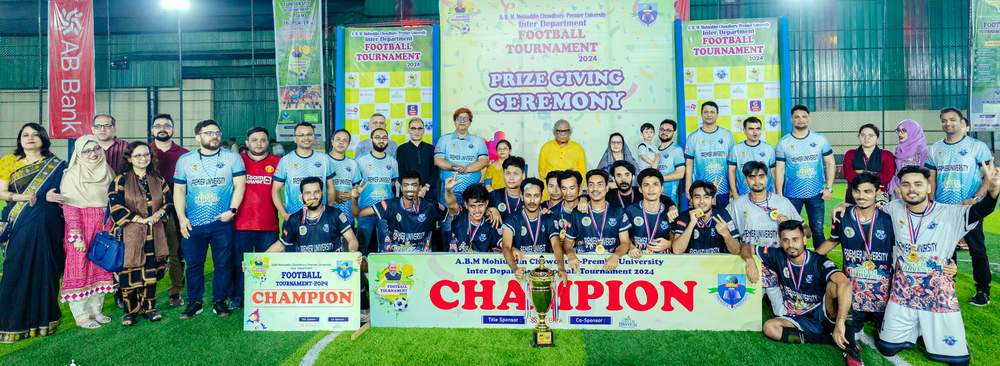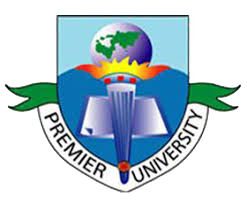
PREMIER UNIVERSITY
Department of Sociology and Sustainable Development

PREMIER UNIVERSITY
Department of Sociology and Sustainable Development
Welcome to DEPARTMENT OF SOCIOLOGY AND SUSTAINABLE DEVELOPMENT
‘Sociology’ is the study of human existence in various forms; these forms may be categorized as societies. Societies emerge, develop or decay, advance or die. The process of evolution of societies is determined and conditioned by physical environment and also by the nature of social and economic institutions. Major social institutions include family, the state, estates, caste and classes, Wars etc. The economic and political institutions and organizations also occupy a major part of sociological studies or curricula as these are, in final analysis, social phenomena that affect the existential problems of man. In recent years climate changes have been adversely impacting many countries including Bangladesh.
The subject ‘Sociology and Sustainable Development’, therefore, include courses related to questions and problems raised above. ‘Sociology and Sustainable Development’, as a result, by making its courses interdisciplinary will enable its students to encounter and to solve problematics of societies-both developed and developing-in their various manifestations. A few such examples are: Family Disorganizations, Class Inequality and Deprivation, Mass Immigration, Urban and Rural Development and Decay, Gender Equality and Inequality, Women Liberation and Empowerment, Literacy and Illiteracy, Nature of Employment and Unemployment, Productivity in Agriculture, Industry and Services, Work Environment and Alienation, Human Resource Development and its Indicators, Food Security, Job Security, Social Security, Issues Related to Development and Underdevelopment, Social Movements, Social Systems, Ecology and Society, Social Disasters etc.
The above mentioned topics and other social and societal problems which will form the core courses will be studied from both theoretical and Empirical Perspectives.
News & Updates
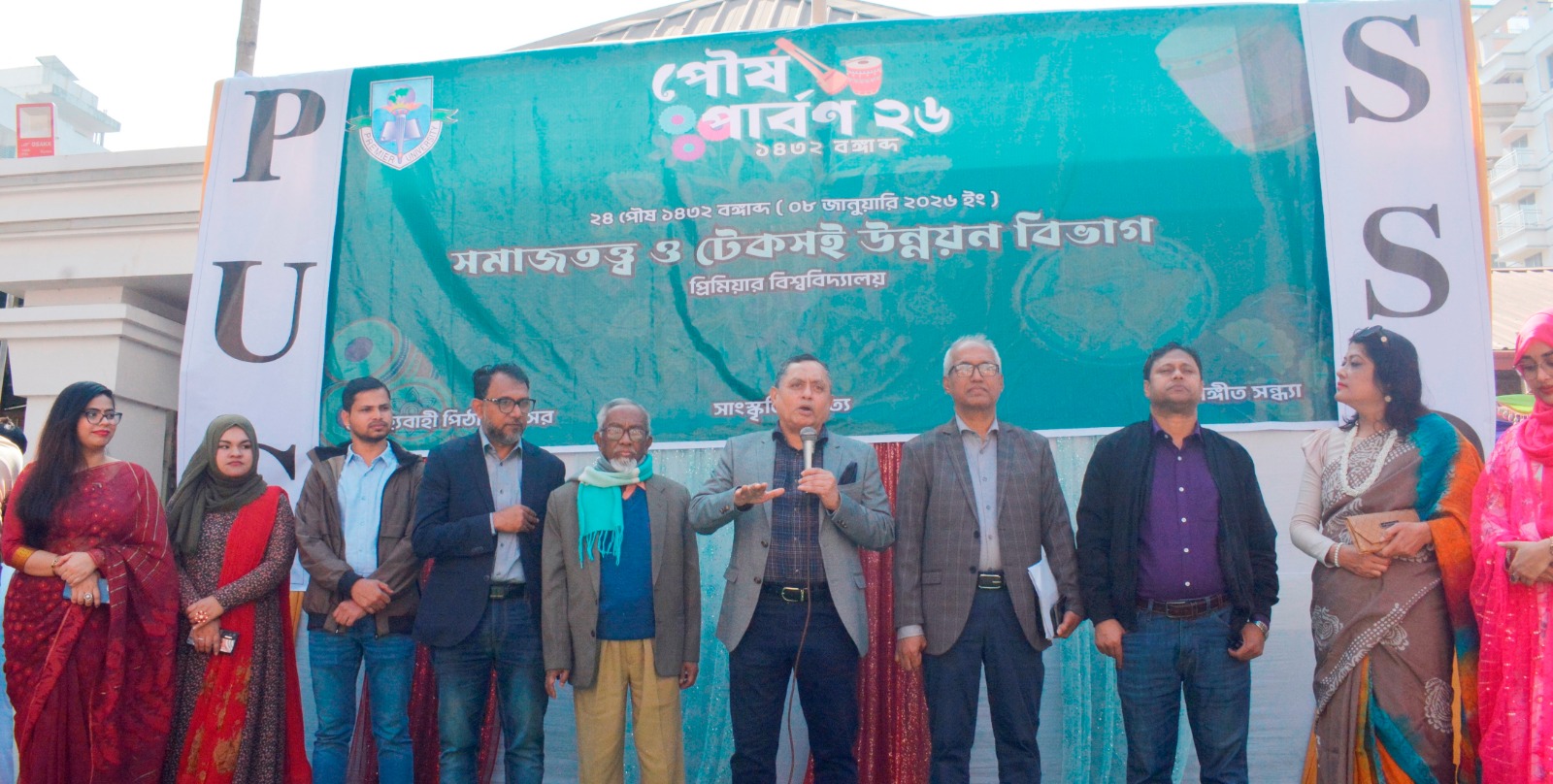
প্রিমিয়ার ইউনিভার্সিটির সমাজতত্ত্ব ও টেকসই উন্নয়ন বিভাগে ‘পৌষ পার্বণ’ অনুষ্ঠিত ।
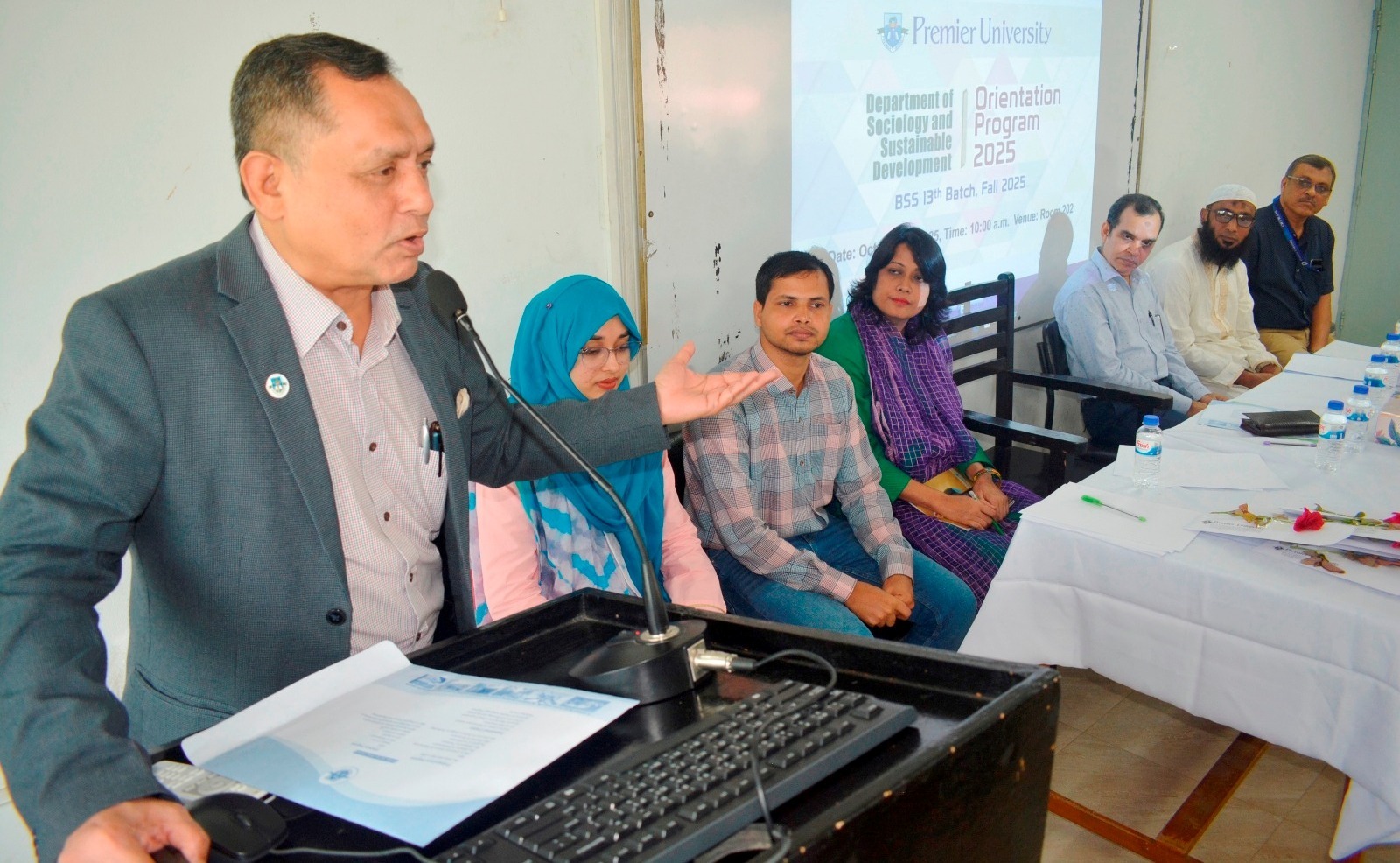
Orientation of the Department of Sociology and Sustainable Development at Premie ... ... ...
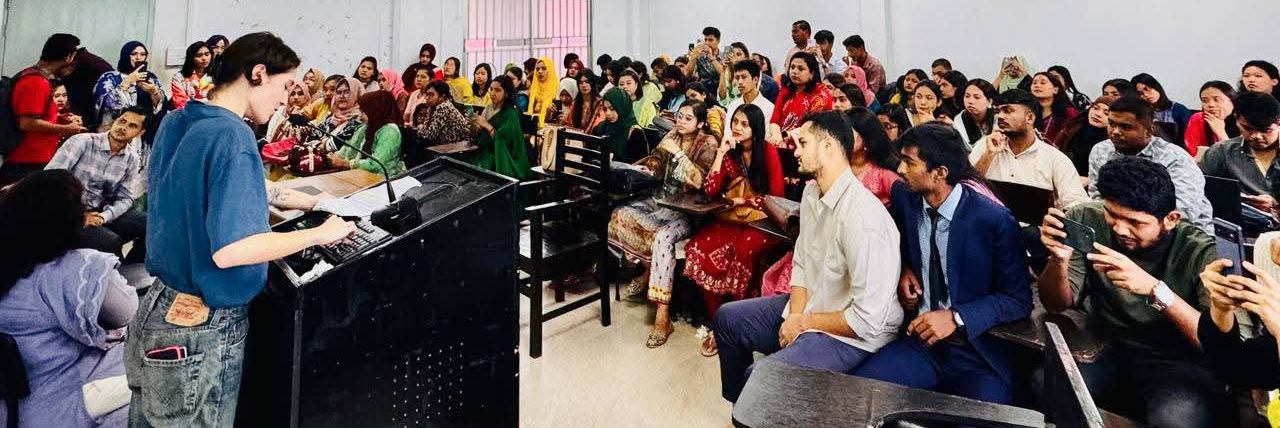
প্রিমিয়ার ইউনিভার্সিটির সমাজতত্ত্ব ও টেকসই উন্নয়ন বিভাগে ‘ফিল্ম এন্ড স্যোশিওলজি’ ... ... ...

প্রিমিয়ার ইউনিভার্সিটির সমাজতত্ত্ব ও টেকসই উন্নয়ন বিভাগের মাঠপর্যায়ের সমীক্ষা ।
Events
Notice
ক্লাস স্থগিতাদেশ বিজ্ঞপ্তি
Notice for the Result of the Examination Program: MSS in Sociology and Sustainable Development 2nd Semester Session: Spring 2024 Final Examination, September 2024
Notice for the Result of Examination Program: MSS in Sociology and Sustainable Development 1st Semester Session: Spring 2024 Semester Final Examination, September 2024
আগামী ১৮ ই আগস্ট রোববার থেকে ইউনিভার্সিটির সব শিক্ষা কার্যক্রম শুরু হবে।
Quick Links and Contacts
- Application - Admission (Demo Copy)
- Application - Student ID
- Application - Migration
- Application - Free Studentship
- Application - Hostel Seat
- Application - Enrollment (Demo Copy)
- Verification Procedure
- Application for Certificate & Procedure
- Money Receipt (Demo Copy)
- Student's Code of Conduct
Student's Link
-
541, O.R.Nizam Road, GEC Circle, Chittagong.
-
1/A,O.R.Nizam Road,Prabartak Circle, Panchlaish, Chittagong.
-
Phone: +8809610828282.
-
Admission Office: +8801313044515-17
-
Accounts Office:
-
Controller of Examinations: +8801313044518
Email : controller@puc.ac.bd -
IT Office: +8801313044519 (Bkash)
-
info@puc.ac.bd
Contact Details
Designed and Developed By Premier University Software Section (IT)
Copyright © 2024 Premier University IT. All rights reserved.
 puc.ac.bd
puc.ac.bd
